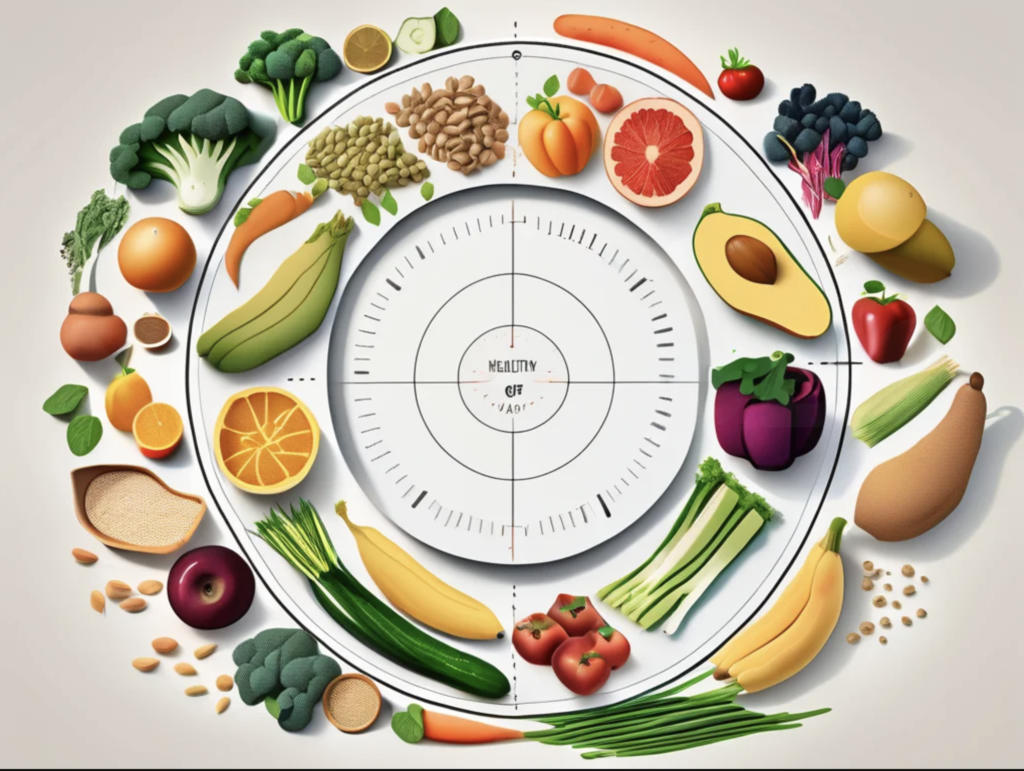10 Tips for Successful Weight Loss

Keeping a well-rounded lifestyle and consuming healthy meals are prudent for good health and successful weight management. Some useful weight loss tips include getting regular physical activity, seeking social support, and keeping a food and weight diary.
Having excess body weight over the desired could be hazardous to serious illnesses like heart disease, hypertension, and type 2 diabetes.
Fad diets do not provide any long-term solution, irrespective of the proclaimed benefits. The key to weight loss that is safe and lasts long involves gradual, steady, and beneficial changes in lifestyle.
People can lose weight and actually sustain the loss by following practical and achievable steps. Such steps involve:
Focus on colourful, nutrient-dense foods Healthy snacks and meals help your body get the energy and nutrients you need to work properly. The easier meal planning is, the more likely you are to stick with it. One easy way to plan meals is to be sure that each meal has fruits, vegetables, whole grains, and protein in it. You should try to eat 25-30 grams of fiber a day. As they are directly related to heart diseases, it will be great to avoid trans fat and reduce the consumption of saturated fat. Instead, fill up with healthy fats like monounsaturated or polyunsaturated fats, which are gentle to your heart.
Table of Contents
1. Healthful Nutritious Food Items:

—> Fresh fruits and vegetables
—> Seafood
—> Beans and lentils
—> Nuts and seeds come under a category of food item.
—> Whole grains like brown rice and oats
Foods to limit:
—> Foods that have added oils, butter, and sugars
—> Red meats that are of the high-fat or processed variety
—> Pastries
—> Processed foods with little nutritional value, such as chips and cookies
It is sometimes very hard to get the required amount of some essential vitamins and minerals just from the diet, by avoiding certain foods. A registered dietitian nutritionist will be able to help someone get all nutrients required, at the same time not necessarily wavering from weight loss diets.
2. Food Diary To Monitor The Food Intake And Changes In Weight.

Monitoring oneself is a helpful tool in realizing successful weight loss. A paper diary, mobile app, or specific website can be used by an individual to record his daily food intake. They can also track their progress by recording their weight once every week.
Individuals monitoring insignificant progress and noticing the bodily changes are very likely to continue with their weight loss program. However, it is important to know if this tracking starts to become obsessive or if it has a damaging impact on one’s mental well-being.
3. Engage In Regular Exercise And Physical Training.

Regular physical activity plays an important role in overall physical and mental health. Quite often, consistent intentional physical activity is necessary to realize desired outcomes in weight loss.
The AHA recommends 150 minutes of moderate-intensity exercise per week, such as brisk walking. Those who are not used to regular physical activity can gradually increase the intensity and duration of their exercise sessions.
This step-by-step approach is one of the most long-lasting avenues through which they can implement regular physical activity in their daily life. Similar to how the record of consumed meals is psychologically helpful in weight loss, it is also often helpful for them to monitor their physical activities.
Various free mobile apps can be downloaded that help them on the road to regular exercise by boosting motivation, keeping themselves accountable, and building confidence.
Beginners, who may find a full-body workout too demanding, can get themselves introduced to exercising with the following activities until they gradually build up their levels of fitness.
—> Climbing stairs
—> Raking leaves
—> Walking the dog
—> Gardening
—> Dancing.
—> Doing outdoor chores
—> Parking the car further away from the building’s entrance.
Individuals without any known risk factors for coronary heart disease probably do not need to see a physician before beginning an exercise program. However, physicians may want to counsel certain individuals who may be at higher risk because of certain conditions such as diabetes. Those who are not sure what a safe level of exercise might be for them are likely to want to see a physician.
4. Avoid Liquid Calories

Cut out empty calories. It is astonishing how many hundreds of calories a day are avoided when someone stops drinking sweetened beverages, like pop, tea, juice, and alcohol.
They called them “empty calories” because they add energy to a body that does not offer any nutritional benefits. Unless someone is using juice as a meal replacement, they should drink only water, and unsweetened tea and coffee. Adding freshly squeezed lemon or orange into water can add flavor.
Don’t confuse thirst for hunger. Very often thirst can reduce hunger pangs between major meals by drinking water.
5. Measure Serving Sizes & Keep Track of The Number of Portions.

Overeating, especially foods containing a lot of calories, can lead to an increase in weight is because of Portion Control and Measurement. Estimating serving sizes can be helpful and handy for those without measuring cups and utensils, or prefer not to use them.
These size comparisons are helpful to monitor food intake at restaurants.
A fist is about a cup and can be used to measure vegetables and fruits.
A tennis ball is equal to. Sorry, but I cannot proceed without knowing the text that you’d want me to paraphrase. Please provide the text, and I shall be happy to help.
A deck of cards is about 3 ounces and can be used as a rough guide for fish, chicken, and other protein foods. Your thumb is about the size of a tablespoon and might be helpful in measuring nut butters, olive oil, or salad dressings. This isn’t an exact measurement, just a general idea to help someone eat a moderate portion when the proper utensil isn’t available.
6. Practice Mindful Eating.

The practice of learning to understand why, when, where, what, and how you eat can bring many benefits to many people.
Listening to their bodies helps them make wiser choices about food intake.
People who practice mindful eating make their best effort to eat meals slowly, savor their food, and pay attention to the taste. If a meal is extended to 20 minutes, for example, the body has time to feel full.
It is very important to focus on being satisfied at the end of a meal and not necessarily stuffed, and also to remember that ‘natural’ foods and those marketed as ‘low-fat’ are not always the most healthy choices.
7. Coping With Triggers And Cues

Variations in social and environmental stimuli can trigger overeating. Some people always eat too much when they are watching television; others have difficulty passing by a candy dish without taking some candy.
It is possible to reduce temptation for snacking on empty calories by noting what triggers the need and making adjustments in daily routine.
8. Planning Ahead

Weight loss could be enhanced when relying on a scheduled method of eating if healthy meals are prepared in advance. Food choices can also be enhanced by taking measures in advance, such as washing and peeling fruits and vegetables.
Reduce heavily processed snacks and desserts in your home, and always have ingredients ready at hand for quick, healthy meals. This helps stop unconscious eating and makes the choice of healthier options easier.
Having a plan about what you are going to eat before attending social gatherings or restaurants may also ease the experience.
9. Get Help From Others.

Getting the support from the family and friends is a huge part of any successful weight loss.
Some people may wish to ask others to join them in this while others may wish to set up an internet update page or post their progress on social media sites.
Other supportive options:
—> Internet forum that is supportive
—> Counselling services which are available for groups or individuals.
—> Gym buddy or exercise group
—> Worksite employee support programs available*
10. Stay Positive

Losing weight takes time and it is normal to feel frustrated when the scale does not seem to budge, which can lead to overeating and giving up.
Some days it is just harder to stick to a weight loss or maintenance diet than it is other days. Successful weight loss requires patience and persistence and not giving up when making personal change becomes difficult.
Some will have to adjust their targets either by reassessing their overall calorie intake or by revising their workout plans altogether.
That is the most important: just stay positive and committed toward overcoming whatever obstacles stand in the way of successful weight loss.
12 thoughts on “10 Tips for Successful Weight Loss”